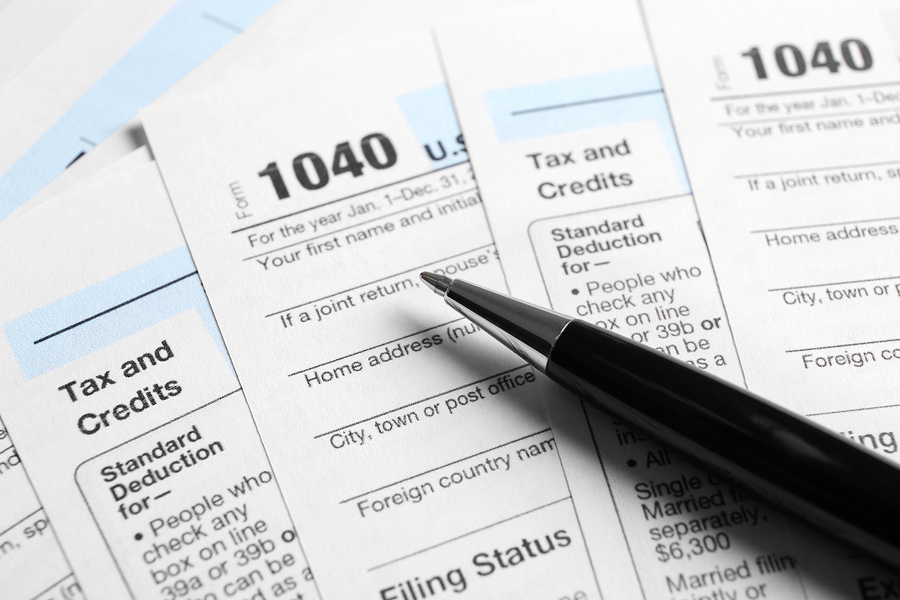
If your income is below the filing requirement, there is no need to file a federal tax return. But for some people, it still makes sense.
There are two main reasons for filing a US income tax return even if you don’t have any income to report.
1. Identity theft, and
2. Identity theft.
I realize it looks like I was repeating myself but I wasn‘t. I’m talking about two different kinds of identity theft. The first is related to an unauthorized person claiming your kids as dependents on their tax return. The second involves someone claiming you, or impersonating you, on a tax return.
Let’s talk about your kids first. Here’s a story I’ve heard several times:
“I’m on SSI and I support my daughter 100%. We get nothing from her father but he claims her every year on his tax return and gets thousands of dollars in refund money. I reported him to the IRS but I haven’t heard anything. I tried to file a tax return but other tax company said I don’t have income so I can’t file. Is there anything I can do to stop him from profiting on my child that he never sees?”
One way to deal with this issue is to report the tax fraud. Here’s more information about how to do that: http://robergtaxsolutions.com/2010/11/how-to-report-tax-fraud/. But here’s the thing–the IRS will never tell you what happens. You’ll never know if the fraud stops. You might not have enough information to give to the IRS to stop the fraud. But if you file a tax return and claim your child as a dependent–that messes up their computers and something is going to happen. The IRS will have to deal with the issue. You’ll need to be prepared to prove that your child lives with you to stop your ex from claiming your child, but hey–with no income, you’re not getting a refund. You’ve got nothing to lose!
Here’s another story that I don’t hear as often, but I have had to deal with before:
I got a letter from the IRS saying that my tax return is wrong and that I shouldn’t have claimed those kids. I don’t understand, I don’t have any kids and I never filed a tax return. What’s going on?
Fraud isn’t limited to claiming kids that aren’t yours; the fraudsters will also use a non-filer’s identity to claim kids that aren’t theirs for huge refunds and then when the IRS investigates, some innocent person who never filed a return gets caught and gets fined. It’s a nightmare to sort this all out.
So how do you protect yourself? File a tax return.
Just because you don’t have any taxable income doesn’t mean you can’t file a tax return. You won’t get any money back, but you can still file an information return just to let the IRS know that you’re out there. Many software programs won’t process the return if you show no income, so you’ll want to plug $1 into the other income section on line 21 for the long form.
You can even file for free with no income from my website. Just go to the “Do Your Own Taxes” tab at the top. Of course, you can always go to the IRS.gov website and use their Free File Online instead. The important thing is that you file a return and protect yourself.

I’m fortunate to have great clients who are genuinely honest and try to observe the tax laws. (But I do know about those fraudsters and they always amaze me.)
More often, I find people who just don’t understand the rules for claiming dependents and I think it’s really important for all preparers, even if they’re not EAs, to get proper training in that area. I looked over your course and it looks pretty thorough. I believe that every tax preparer, whether they’re getting paid or preparing free returns for VITA, needs to be properly trained on the dependency rules. The IRS loses $14 Billion (that’s billion with a B) a year on people improperly claiming dependents for EIC. I hate to see my tax dollars wasted on improperly prepared (or fraudulent) tax returns.
Excellent suggestion for protecting people without tax filing requirements that I will pass along to my colleagues in the tax business. Resolving instances of fraud is time consuming and frustrating. I especially liked the example of a non-filing person’s children claimed by someone else. A major problem that tax professionals often sort out for their clients is eligibility for claiming a dependent child. A starting point on this subject for anyone who has not taken a tax preparer course is the general facts in the article at http://fastforwardacademy.com/blog/2012/03/30/tax-preparer-course-factors-about-resolving-dependency-claims/.
Sometimes taxpayers are willful fraudsters and occasionally tax preparers simply encounter individuals who don’t understand the rules for claiming dependents. As you recommend, the best option for someone with eligible dependents is to claim them despite not needing to file a tax return.